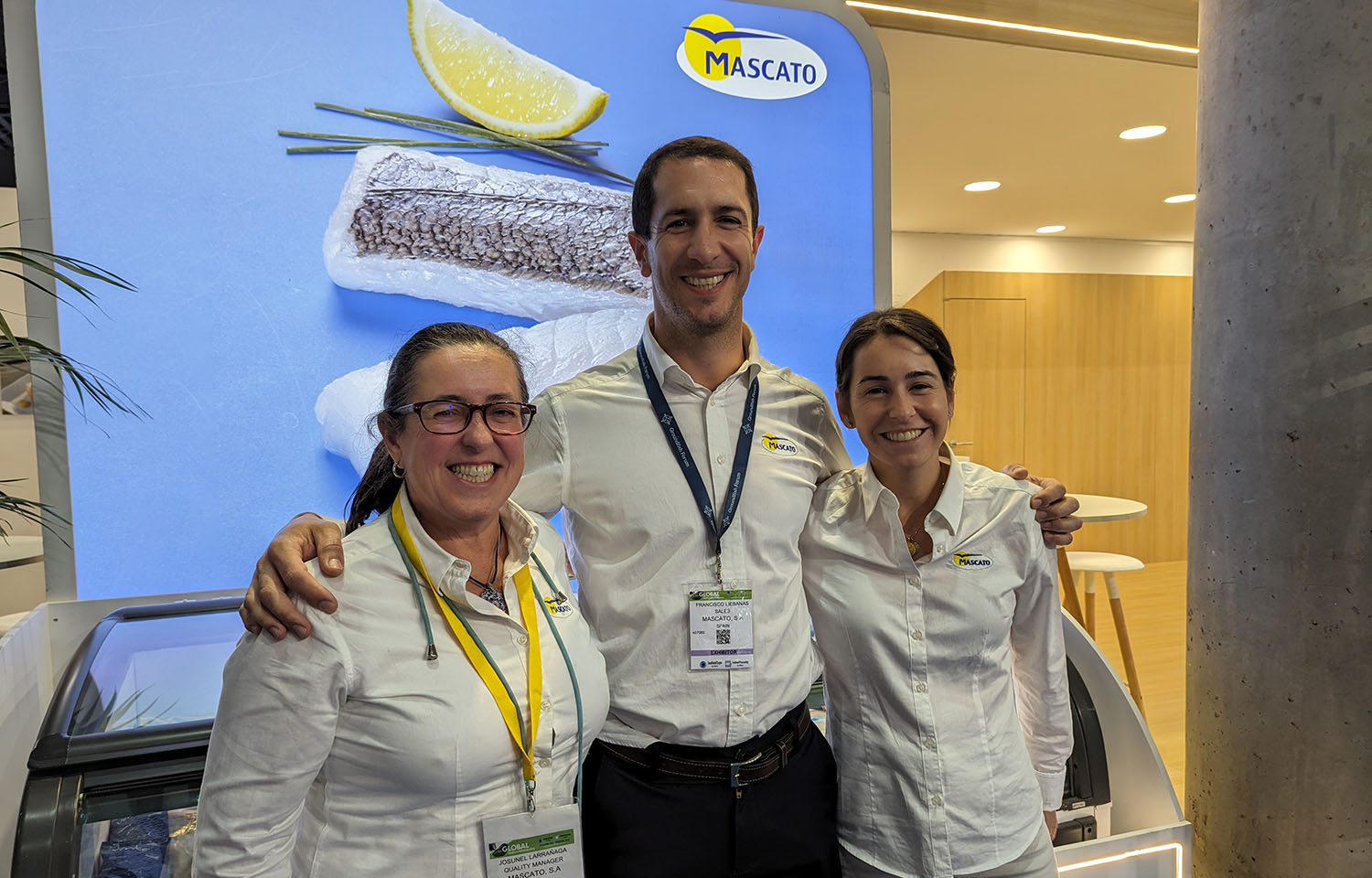Founded in 1994, Vigo, Spain-based seafood company Mascato has grown from a small family business to a multi-national specialist in multiple types of seafood, employing more than 1,500 people in multiple countries.
From the beginning, Mascato has worked to have control of its full supply chain, attributing this as a key element of its success, Mascato Quality and New Products Director Josune Larrañaga told SeafoodSource.
“They understood that working to control the raw materials was the most important thing,” she said.
That philosophy has led to Mascato's control over its fishing fleet in Namibia, where the company operates trawlers and longliners for hake, monkfish vessels, and crab vessels. Those fleets supply Mascato’s processing facilities in Spain and Namibia, and the company also has a fleet that operates in the Great Sole Bank, an area of the Atlantic Ocean southwest of Cornwall, England.
Additionally, the company operates mussel farms and processing facilities in Chile, which have become increasingly important for its value-added offerings. Larrañaga said the company started offering value-added mussels back in 2007 and has subsequently built up the market with innovative products.
Across all of its sourcing, Mascato remains committed to maintaining relevant ecological certifications, including Marine Stewardship Council and Aquaculture Stewardship Council certifications, Larrañaga said. The company also participates in fishery improvement projects for sharks and swordfish – two species for which it has also developed products.
A lot of Mascato’s value-added products got their start in the U.S. and can be found under the company's “Next Wave” brand, including products like mussels in various sauces or shrimp slated for use in tacos or fajitas.
The success of value-added offerings in the U.S. led the company to expand those products to Spain.
“In 2017, we started working with other factories, specifically in Spain, arranging new products that were value-added for the U.S., and now we are bringing it here,” Larrañaga said. “Slowly, we are getting people to ask for them, and they see us as an innovation company. So, sometimes with clients who have an idea, we will talk with them and develop things for them as well.”
The company’s hake business is also evolving, Larrañaga said. The company is delivering loins and tails and is diversifying its products from the start of the supply chain.
Despite the wide range of operations and products, the company maintains a core goal of capitalizing on raw materials to make seafood more accessible and appealing to the average consumer, Larrañaga said.
“This is a very inexpensive raw material and a very good raw material, and we’re trying to promote it,” she said. “At the end of the day, our idea is that consumers can buy fish and seafood every day; seafood should not be considered as a special item only.”








